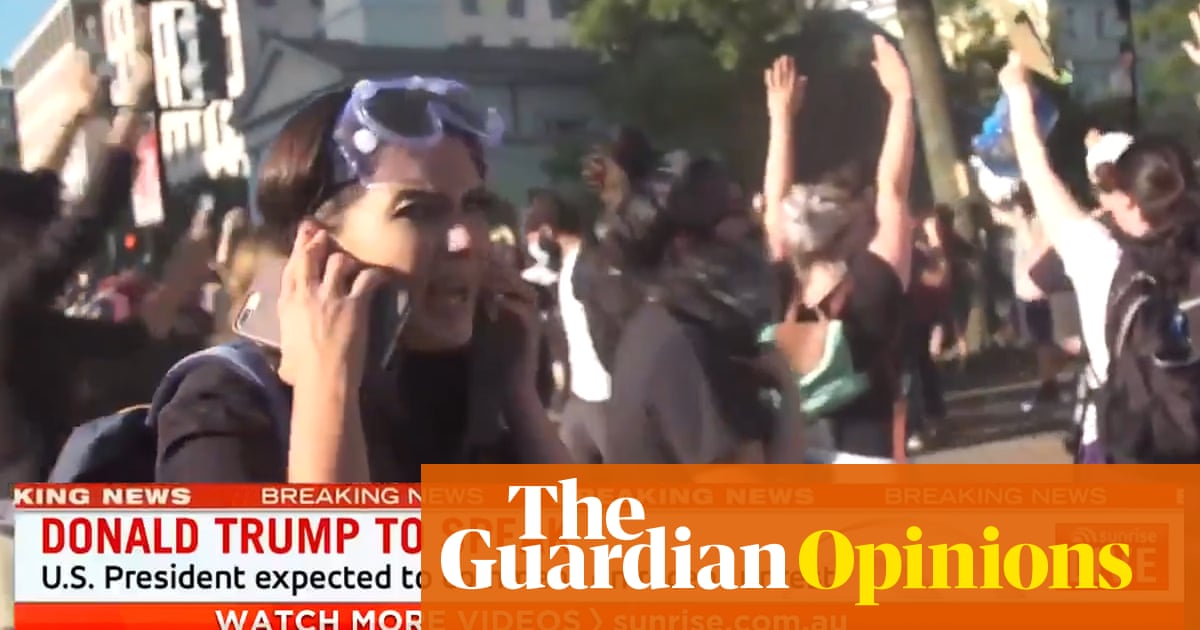
The Guardian view on Trump and the military: moment of decision
The US president’s desire to act the strongman poses urgent questions that America’s generals, voters and allies must all answer
American military force shaped the modern era. Sometimes it overthrew tyrannies and made the world safe, as in 1940s Europe. At other times it has made the world more dangerous, as in Vietnam and Iraq. In the civil war of the 1860s, the military preserved the Union at terrible but necessary cost. Since then, with a handful of exceptions and then mostly only at the request of state governors, the US military has been kept well out of domestic politics. America fiercely celebrates its military, but its laws place firm restrictions on military action within the United States itself.
There is an overwhelmingly good reason for this caution. Military force, whether embodied in martial law or through the lethal power of arms and force, is incompatible with constitutional democracy, rights and justice. Poland discovered that in 1981. So did the democracy activists of China at Tiananmen Square in 1989. The people of countries like Egypt, Turkey, Thailand and Pakistan, where martial law has been common, know better than most what military rule entails. Lest there be any British smugness, remember also Northern Ireland, where the arrival of British troops in 1969 became as much the source of the nearly 40-year Troubles as their solution, especially after the Bloody Sunday shootings of civilians.
Donald Trump is now actively agitating to dispatch American armed forces to crush protests on American soil. Whether he goes through with that threat depends on whether the protests, triggered by the police killing of George Floyd in Minneapolis, continue at the level experienced in dozens of US cities during the past week. There are significant signs that the peak of the worldwide protests may have passed for now. But Mr Trump is in the provocation business. He thinks America’s racial divisions may help his re-election campaign, badly damaged by his mishandling of the Covid-19 pandemic. Nothing can be ruled out with this president.
In Washington this week, Mr Trump gave Americans a taste of what he may do. Because he has more powers in the District of Columbia than in the states, Mr Trump mobilised military police, the 82nd Airborne Division, an army Black Hawk helicopter, and perhaps more shadowy groups, in shows of force in the capital city. Having described the unrest, the majority of which has been peaceful, as domestic terror and promised to use “thousands and thousands of heavily armed soldiers”, his forces used teargas to clear peaceful protesters from outside the White House. Then, accompanied by the chairman of the joint chiefs of staff, Gen Mark Milley, dressed in battle fatigues, Mr Trump staged a bible-waving photo opportunity.
These posturings were so shocking that they sparked a rare political backlash within the military and beyond. The defence secretary, Mark Esper, who had earlier called US cities a “battlespace”, backed away from using force. His predecessor James Mattis said Mr Trump was the first president in his lifetime who was a divider, not a uniter. Gen Milley, who three years ago expressed support for “disciplined disobedience” for the sake of a “higher purpose”, issued an order to uphold equality, freedom of speech and the right to dignity. In the past, Trump aides have stayed shamefully silent. This may mark an overdue change.
Mr Trump is infatuated with military and political strongmen. He sides with authoritarians like Xi Jinping, Vladimir Putin, Kim Jong-un and Rodrigo Duterte. He supported the Tiananmen repression. He goes out of his way to praise violent military officers. Though he evaded military service himself, he has a fetish about the forces. Early in the pandemic he egged on armed movements that protested against social distancing. It may seem incredible that a president might seek the killing of his own people for political advantage. But as he battles to retain power, military officials and Republican candidates, as well as voters and foreign governments, will all have to decide which side they are on.



